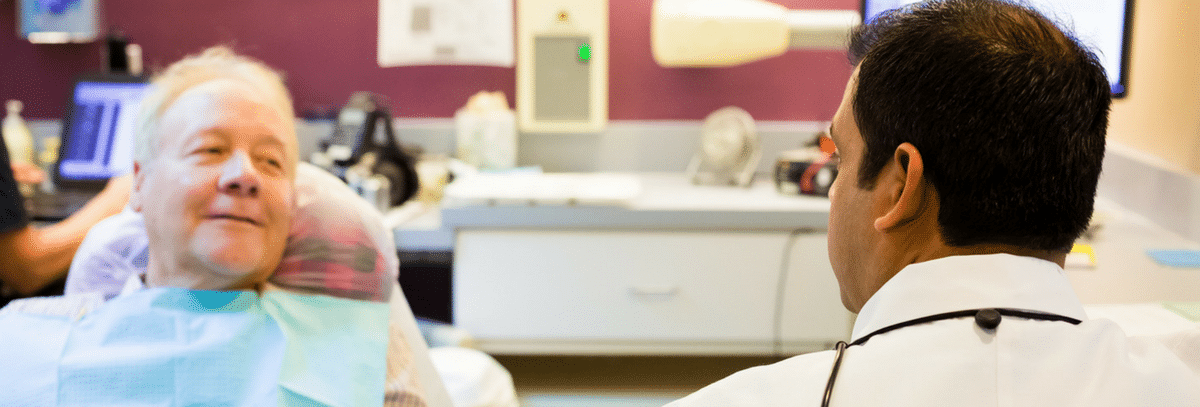Due to the nature of our restorative dentistry practice, we tend to see many overlapping dental issues arise with our patients, such as temporomandibular joint disorder (TMJ) and its relation to dentures. Patients with pre-existing TMJ disorder often wonder if their TMJ can be helped or worsened by dentures. To help, our Gainesville dentists have answered some of the questions surrounding dentures and TMJ. Schedule a dental consultation with the Gainesville dentists at Comprehensive Dental Care today!
TMJ Symptoms
TMJ can have various symptoms, and if you are experiencing any of the following, seek a medical professional for an accurate diagnosis. It’s important to remember that TMJ is a condition that can be treated and fixed with the right methods.
- Aching In Or Around The Ears
- Sore Or Tender Jaw, Especially While Eating Or Yawning
- Clicking Or Popping Sound When You Move Your Jaw
- Tight Or Locked Jaw
- Frequent Headaches
TMJ And Dentures
To understand how dentures affect TMJ, it’s important to understand what causes TMJ. A misaligned bite caused by damaged or missing teeth often results in TMJ disorder because the stress of the mouth becomes imbalanced, putting extra pressure on the jaw. As such, partial dentures can help alleviate this by realigning your mouth back to its natural and most comfortable position. However, when not properly fitted, dentures result in a misaligned bite, leading many people to assume the dentures are causing their TMJ when it’s just a symptom of poorly fitted dentures. Correcting the fit can help resolve this problem. Another common issue with dentures is people often wear their dentures long past their prime. Additionally, the face and jaw may change over time. To address this, it’s important to have new dentures made every five to seven years.
TMJ Treatment
In addition to ensuring dentures are fit properly, other effective treatments depend on the cause and severity of TMJ. Our dentists in Gainesville, FL, can help you decide what the right course of action is, including any of the following.
- Pain Relievers
- Anti-Inflammatories
- Oral Splints Or Mouth Guards
- Low-Dose Tricyclic Antidepressants
- Muscle Relaxants
- Jaw-Strengthening Exercises & Therapy
- Surgery
If you have missing or damaged teeth or believe misaligned dentures could be contributing to your TMJ, contact Comprehensive Dental Care to get the dental care you need! We offer a wide range of cosmetic and restorative dentistry services that can give patients the beautiful, pain-free smile you’ll love.
